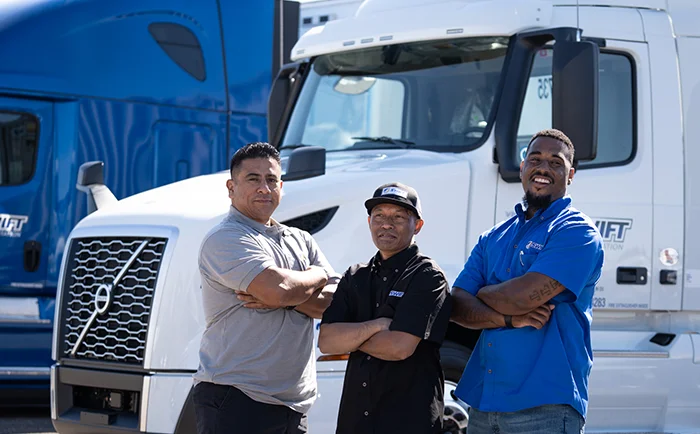Introduction
Canada is globally recognized not only for its stunning natural landscapes and high quality of life, but also for its inclusive immigration policies. One common pathway to permanent residency is through marriage or a common-law relationship with a Canadian citizen or permanent resident. For many couples, this is a life-changing opportunity that opens doors to a brighter future. However, navigating the Canadian spousal sponsorship process can be complex. Understanding the legal framework, application procedures, and post-arrival opportunities is crucial to a successful relocation.
Relocating to Canada through marriage is not a guarantee of immediate immigration approval. The Government of Canada, through Immigration, Refugees and Citizenship Canada (IRCC), takes marriage-based sponsorship seriously to prevent fraudulent applications. The process includes proving the genuineness of the relationship, submitting detailed documentation, and undergoing background checks. This guide outlines the full spectrum of what’s required—from eligibility to employment possibilities after arriving in Canada.
For those considering making Canada their new home through marriage, this article provides a comprehensive roadmap. Whether you’re already married or planning to tie the knot, being informed is the first step in ensuring a smooth transition. We’ll cover entry-level job opportunities, required documents, trusted employment resources, and more. Let’s walk through the process together with expert insight.
Entry Level Jobs for Immigrants
Finding work after relocating to Canada is often a top priority for newcomers. While many immigrants eventually pursue careers in their trained fields, entry-level jobs provide an essential starting point, especially while waiting for credential recognition or improving language skills.
Below is a table showcasing popular entry-level jobs available to immigrants in Canada, along with average hourly wages and the typical locations where these jobs are in high demand.
| Job Title | Average Hourly Wage (CAD) | Common Locations | Skill Level Required |
|---|---|---|---|
| Customer Service Associate | $15 – $20 | Toronto, Vancouver, Calgary | Basic communication skills |
| Warehouse Worker | $16 – $22 | Brampton, Edmonton, Montreal | Physical strength, teamwork |
| Food Service Worker | $14 – $18 | Ottawa, Halifax, Winnipeg | Minimal training, friendly |
| Housekeeping Attendant | $15 – $19 | Quebec City, Niagara Falls | Attention to detail |
| Cashier | $14 – $17 | Surrey, Mississauga, Regina | Basic math, communication |
| Delivery Driver | $18 – $25 | Vancouver, Montreal, Hamilton | Valid license, punctuality |
| Construction Labourer | $18 – $28 | Calgary, Saskatoon, Kelowna | Physical fitness, safety |
| Retail Sales Associate | $15 – $20 | Toronto, Edmonton, Victoria | Sales skills, customer focus |
| Cleaner/Janitor | $14 – $19 | Winnipeg, London, Windsor | Reliability, efficiency |
| Caregiver/Personal Support Worker | $16 – $24 | Toronto, Ottawa, Vancouver | Certification may be required |
These roles not only provide income but also help immigrants build work experience in Canada, develop networks, and understand Canadian workplace culture.
Application Requirements and Documents
To sponsor your spouse or common-law partner to immigrate to Canada, both the sponsor and applicant must meet specific eligibility requirements and prepare a comprehensive set of documents. Here’s a breakdown of what’s required:
Eligibility Criteria for the Sponsor:
- Must be a Canadian citizen or permanent resident
- At least 18 years old
- Not receiving social assistance for reasons other than disability
- Able to financially support the sponsored spouse for three years
- Must not have been sponsored themselves within the last five years
Eligibility Criteria for the Sponsored Partner:
- Must be at least 18 years old
- Must be legally married or in a genuine common-law relationship (at least 12 consecutive months of cohabitation)
- Must not be inadmissible to Canada (criminal record, medical inadmissibility, etc.)
Key Documents Required:
- IMM 1344 – Application to Sponsor, Sponsorship Agreement and Undertaking
- IMM 5532 – Relationship Information and Sponsorship Evaluation
- Proof of Relationship – Marriage certificate, photos, joint bills, lease agreements, communication logs
- Identification Documents – Passports, national ID cards, birth certificates
- Police Certificates – From any country where the applicant has lived for 6+ months since the age of 18
- Medical Exam Confirmation – Done by an IRCC-approved panel physician
- Proof of Status in Canada (for sponsor) – Canadian passport, PR card, citizenship certificate
Application Pathways:
- Inland Sponsorship: If the spouse is already in Canada; eligible for an open work permit
- Outland Sponsorship: If the spouse is outside Canada; processed through visa offices abroad
It’s vital to ensure all forms are accurately completed and that documents are translated into English or French, certified where necessary, and submitted by the correct deadlines.
Employment Websites to Find Opportunities
Once you arrive in Canada or receive your open work permit (if applying inland), the next step is to search for job opportunities. Fortunately, there are numerous reputable websites dedicated to helping immigrants find employment in Canada.
Here are the top employment websites for newcomers:
1. Job Bank (jobbank.gc.ca)
- Canada’s official government job portal
- Offers tools like job trend analysis, resume builder, and labour market info
2. Indeed Canada (ca.indeed.com)
- One of the largest job boards in the country
- Offers filters for location, salary, job type (full-time, part-time)
3. Workopolis (workopolis.com)
- Includes career planning tools and resume advice
- Useful for both entry-level and skilled jobs
4. Monster Canada (monster.ca)
- Hosts a wide range of jobs, including internships
- Strong employer branding and matching algorithm
5. Glassdoor (glassdoor.ca)
- Great for checking company reviews and salary data
- Also lists current job openings
6. LinkedIn (linkedin.com)
- A professional networking platform used heavily by Canadian recruiters
- Networking is key to finding hidden job markets
7. Settlement Agencies
- Organizations like YMCA Employment Services, ACCES Employment, and SUCCESS help newcomers build resumes, practice interviews, and connect with employers
Be proactive in tailoring your resume to the Canadian format and consider taking short online courses or certification programs to enhance employability.
Conclusion
Relocating to Canada through marriage is a life-changing decision, filled with opportunities and challenges. Understanding the intricacies of the spousal sponsorship process—from eligibility criteria to required documentation—is essential to ensure a successful and stress-free immigration experience. While the process may seem daunting, many couples successfully reunite and build thriving lives in Canada each year.
Employment is often the first major step after arriving. Starting with an entry-level job provides a solid foundation and helps newcomers adapt to Canadian life and workplace expectations. Numerous resources, including government programs and job websites, are available to assist in this transition.
Canada remains one of the most welcoming countries in the world for immigrants, and the path through marriage is a legitimate, compassionate route for family reunification. By preparing thoroughly, staying informed, and utilizing available support systems, you can turn your Canadian dream into reality—together with your partner.




